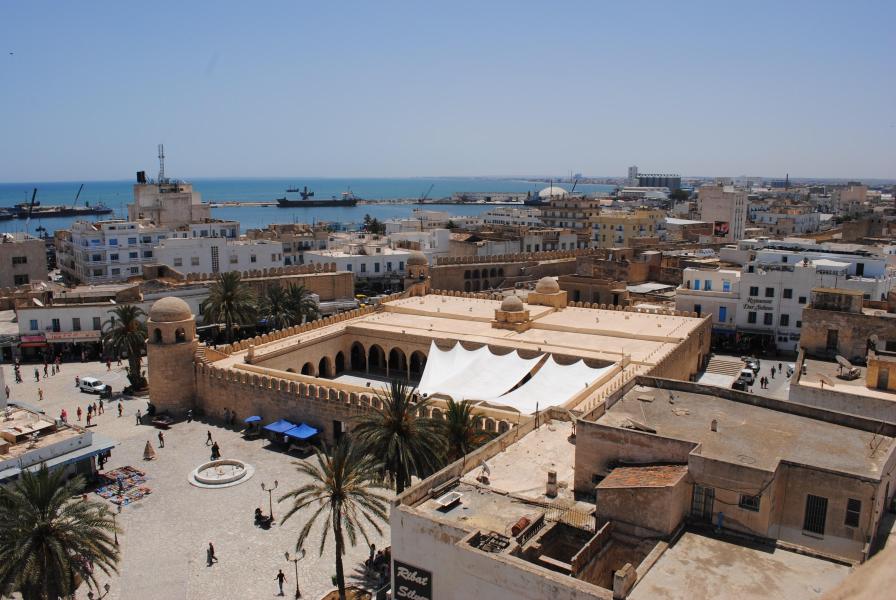
Tunisia’s Minister of Equipment and Housing Sarra Zaâfrani, EU Ambassador Marcus Cornaro, France’s Ambassador to Tunisia André Parant, Head of the European Investment Bank (EIB)’s Delegation in Tunisia Jean-Luc Revéreault, and Agence française du développement (AFD)’s Tunisia Director Yazid Safir today visited the Bir Halima municipality of the municipality of Zaghouan, which has been regenerated as part of an ambitious Neighbourhood Rehabilitation and Integration Programme (PRIQH).
This municipality, with a population of 6 000, has seen its infrastructure and housing renovated and its social and economic amenities enhanced, including a new sports hall, a neighbourhood area and an industrial facility.
During the first phase of this programme (PRIQH I), 155 neighbourhoods were rehabilitated across Tunisia. This programme also promoted socioeconomic dynamics via the creation of 48 neighbourhood areas, 52 socio-collective amenities and 19 industrial facilities in the rehabilitated neighbourhoods. The second phase of the PRIQH programme, launched in 2019, aims to rehabilitate 159 neighbourhoods.
PRIQH 1, implemented by the Urban Rehabilitation and Renewal Agency (ARRU), is co-financed to the tune of MAD 610 million by the European Investment Bank (€70 million), the European Union (a €57.44 million grant) and AFD (€30 million). With this funding, PRIQH 1 has improved the living conditions of more than 870 000 people and promoted the socioeconomic integration of young people in the neighbourhoods concerned.
“The European Union attaches particular importance to such projects given their direct, tangible impact on improving people’s living conditions. The approach adopted is also innovative through the installation of cultural, sports and socioeconomic spaces. Since 2012, we have provided some €100 million in funding for neighbourhood rehabilitation programmes and we are open to increasing this cooperation with our partners,” said EU Ambassador to Tunisia Marcus Cornaro.
“Once again I am pleased to see how these neighbourhood rehabilitation projects are helping to enhance people’s daily lives in Tunisia. They improve daily transport, provide running water and sanitation networks and make the streets safer with better public lighting. They also boost social links through the creation of public parks, gyms, football pitches and cultural spaces. This is the type of tangible impact on daily life that France is aiming to achieve through its cooperation, particularly via AFD, which has contributed over €630 million towards urban renewal in Tunisia,” said France’s Ambassador to Tunisia André Parant.
“By fostering access to basic services and socio-collective facilities, urban rehabilitation is a key factor for economic growth and social inclusion. As the EU bank, the EIB has prioritised investment in regeneration projects that help to reduce inequalities. In Tunisia, we will continue to support job-creating investments that further integration," said Jean-Luc Revéreault, Head of the EIB’s Delegation in Tunisia.
Background information
EIB Global is the EIB Group’s specialised arm dedicated to increasing the impact of international partnerships and development finance. It is designed to foster strong, focused partnership within Team Europe, alongside fellow development finance institutions, and civil society. EIB Global brings the Group closer to local people, companies and institutions through our offices across the world.